-
About
- Health
-
Patient Care
I Want To...
-
Research
I Want To...
Find Research Faculty
Enter the last name, specialty or keyword for your search below.
-
School of Medicine
I Want to...
Cell's Recycling Center Implicated in Division Decisions - 07/28/2014
Cell's Recycling Center Implicated in Division Decisions
Allows cancer cells to divide even when oxygen-starved
Release Date: July 28, 2014

Cancer cells (right) treated with a drug that interferes with lysosomes show greatly reduced DNA replication (bright spots) compared to untreated cells (left). Cell nuclei are shown in dark blue.
Cyclin-dependent kinases regulate lysosomal degradation of hypoxia-inducible factor 1 alpha to promote cell-cycle progression. ME Hubbi, et al. PNAS, 2014. doi: 10.1073/pnas.1412840111
Fast Facts:
- Normally, the protein HIF1-alpha prevents cells from replicating when oxygen supplies are low.
- Some cancer and other cells can circumvent this.
- Researchers learned that lysosomes, the cell’s recycling centers, are involved in the process.
- HIF1-alpha’s regulatory abilities are restored by treating the cells with drugs that inhibit lysosomes.
Most cells do not divide unless there is enough oxygen present to support their offspring, but certain cancer cells and other cell types circumvent this rule. Researchers at The Johns Hopkins University have now identified a mechanism that overrides the cells’ warning signals, enabling cancers to continue to divide even without a robust blood supply. In the process, the researchers found that lysosomes — the cell’s protein “recycling centers” — help govern cell division decisions. They also uncovered new evidence that certain drugs can halt the growth of tumors that have high levels of the protein HIF-1alpha.
A summary of their findings was published July 28 in the journal PNAS.
Low levels of oxygen stimulate the production and activation of HIF-1alpha, which protects cells in two ways. Primarily, it turns on several genes for proteins that help the cells adapt to the lack of oxygen. It can also stop the duplication of DNA, which prevents cells from dividing and adding more oxygen-using cells to an already harsh environment.
Knowing that some cells ignore the warnings of HIF-1alpha and divide anyway, Gregg Semenza, M.D., Ph.D., and his team looked for interactions between HIF-1alpha and Cdk1 and Cdk2, proteins known to regulate cell division decisions. They found that HIF-1alpha interacts with both of them, but that Cdk1 increases HIF-1alpha levels, while Cdk2 lowers them.
Semenza’s team suspected that Cdk1 and Cdk2 were acting on HIF-1alpha by marking or not marking it for destruction by the cell’s miniature “garbage disposals,” called proteasomes. But when the researchers blocked proteasome function, they found no changes in HIF-1alpha levels. Instead, Cdk1 and Cdk2 turned out to alter HIF-1alpha levels by marking or not marking it for destruction by the cell’s lysosomes. To their knowledge, this is the first time lysosomes have been implicated in a cell’s division decisions.
Remarkably, in certain cancer cells, Cdk2 was able to decrease levels of HIF-1alpha while also stimulating its gene activation activity. The net effect was that cells continued dividing while coping with low oxygen levels. In cultured cells, drugs that inhibit Cdk1 prevented HIF-1alpha levels from falling and restored its ability to halt cell division, suggesting they may be effective treatments for certain cancers.
Gregg Semenza is the C. Michael Armstrong Professor of Medicine and a professor of pediatrics, oncology, radiation oncology and biological chemistry at the Johns Hopkins University School of Medicine and the Johns Hopkins Kimmel Cancer Center. Other authors of the report include Maimon Hubbi, Daniele Gilkes, Hongxia Hu and Ishrat Ahmed of the Johns Hopkins University School of Medicine; and Kshitiz of Yale University.
This work was supported by grants from the National Cancer Institute (K99CA181352) and the American Cancer Society.
Related Stories:
On the Web:
- Semenza Lab
For the Media
Contacts:
Catherine Kolf
443-287-2251
[email protected]
Vanessa McMains
410-502-9410
[email protected]
Shawna Williams
410-955-8236
[email protected]
Downloads:
The photo accompanying this story is available for download.
We are providing this photo with the understanding that it will be used only to help illustrate the story in the corresponding news release. Please use the credit information provided. If there is anything else you need, please email us at [email protected]. Thank you.



